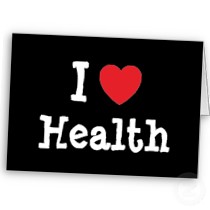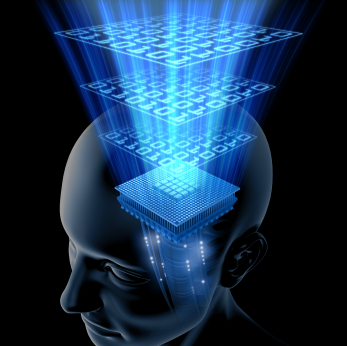Stroke

Heart Attack and Stroke both fall under the grouping of cardiovascular accidents. The classic approach to cardiovascular accidents has been based on the lipid hypothesis. This is covered in more detail in the mailing titled The (Big) Fat Lie. The Lipid hypothesis says that you eat a lot of fats and cholesterol and this makes a “goo” that settles out in your arteries and clogs your arteries with plaque. Clots originate from the plaque and block blood flow to your heart or brain and you get a heart attack or stroke (depending on the clot location). Research has shown that this dietary fat association is not supported.
The Modern Mechanism theorizes that cholesterol becomes high, then it penetrates the arterial wall and gets stuck. White blood cells attack the cholesterol and form foam cells, this then leads to local injury, cell death and calcification (together termed plaque). A “fibrous cap” forms over the lesion which then can rupture and form clots that can block the arteries to the heart (or brain) and you have a heart attack (or stroke). However studies have been having a hard time proving the idea that cholesterol in the blood directly correlates with more cardiovascular incidents. (See “Is Cholesterol Good or Bad). There appears to be a much higher correlation with inflammation in the arteries than cholesterol. Inflammation is associated with injury.
One group of doctors adhere to the Endothelial (artery lining) Injury Hypothesis. They claim that the arteries become weak and more prone to mechanical injury. Supporting this is that the principle areas of plaquing occur where the arteries twist and turn the most. The arteries are most susceptible to injury at these points. The weak and damaged areas are more easily affected by several factors including free radicals, oxidized lipoproteins (LDL’s), infections and chemicals. White blood cells go to the scene of damage and injury; connective tissue, fats and minerals form plaque which then can cause blood clots.
Linus Pauling, nobel prize winner and discoverer of Vitamin C, has a theory on how LDL’s (sometimes known as “bad cholesterol”) cause plaque formation. He claims that when blood vessel walls are damaged and there isn’t enough vitamin C and certain amino acids present, the “sticky” LDL particles will adhere to the damaged ends of the connective tissue to form patches. When there is adequate Vitamin C and proline and lysine amino acids the damaged ends of the connective tissue change (become hydroxylated) such that they do not stick to the LDL particles and plaquing does not occur. The collagen in the damaged connective tissue can be spliced back together much like a sailor splices rope together and the arteries heal as they should.
Other doctors claim that some heart attacks aren’t even caused by blood clots. There is a “Myogenic Theory” of heart attack that claims the heart cells, under certain conditions of stress, can suffer from inadequate oxygen and nutrient supply. The smaller vessels of the heart are compromised and the heart experiences severe acidosis and cramps up. It explains why stress, diabetes and smoking are such strong risk factors for heart attacks. Treatments following this line of treatment have shown promising results, generally through the use of certain compounds that target the reversal of lactic acid buildup in the heart tissue (from foxglove and strophanthy, an African vine.) These compounds are called cardiotonics and they are chemical copies of hormones produced by our adrenal glands. Ironically our adrenal glands make these compounds out of cholesterol.
Another non blood clot type of heart attack is called a “neurogenic heart attack.” Arteries have a muscular layer in them. If something affects the nerves to the arteries that supply the heart, the muscles of the arteries can spasm and close off the blood supply whether the arteries have plaquing or not. This can be perplexing to doctors who have patients who apparently had a heart attack, yet their arteries are clear.
There is also another type of vascular accident that does not involve a blood clot that is stroke related. There are two basic types of stroke: non-hemorrhagic (blood clot) and hemorrhagic stroke. A hemorrhagic stroke results when the blood vessel breaks and hemorrhage occurs in the brain. A hemorrhagic stroke is caused by a weakening of the arteries and/or blood that is failing to properly clot. It is a risk that occurs with many of the blood thinning drugs. Sometimes it is related to blood pressure that runs too high for too long.
When I test people in my office who have a history of arterial plaquing, or atherosclerosis as it is often called, I usually find that there is something weakening their arteries. This can be from free radicals associated with toxins from the bowels, from liver or kidney malfunction, chemical or heavy metal poisoning, high blood sugar and/or inflammation associated with secondary infection in the arterial tissue. Sometimes there is simply a lack of a vital mineral or nutrient.
Cardiovascular incidents, often a long time forming, are usually precipitated by a combination of “wrong” things all coming together at once. For example, the person may have been recently exposed to some heavy metal toxin that was hard on their organs and arteries at the same time that they ate some food that was spoiled, while they had some stress or lack of sleep that put extra stress on their adrenals and heart.
Since cardiovascular incidents have long been the number one killer in the United States it is paramount that we keep our arteries and blood vessels in good shape. In order to do this we have to make sure that our arteries have what they need to stay strong including good vitamins, minerals, and amino acids. We also need to handle whatever is assaulting our arteries by handling chemicals, toxins and organ malfunction that may result in unnatural breaking down of the arteries. Finally we need to resolve inflammatory issues associated with the arteries and give them what is necessary for proper healing and function. Every person is different. Not everyone has the same exact stress factors and malfunctions that are interfering with their arteries. Cause and Effect Muscle testing can help you spot which factors may currently be affecting your arteries and offer safe effective solutions. Call (260) 459-6160 for an appointment. Why not stack the odds in your favor?











